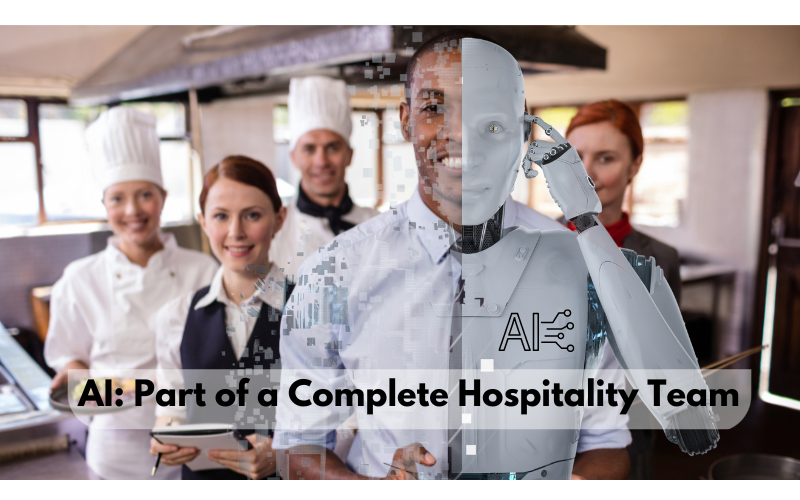The hospitality industry is known for its exceptional customer service and personalized guest experiences. However, the industry has been grappling with a persistent human resource shortage that poses challenges to maintaining service standards. Fortunately, artificial intelligence (AI) has emerged as a game-changer, offering innovative solutions to bridge the gap. In particular, the use of chatbots and voice-enabled virtual assistants like Alexa is transforming guest assistance and customer service, ensuring a seamless experience even amidst a shortage of human resources.
- Streamlined Guest Assistance
Chatbots have become an indispensable tool for handling guest inquiries and providing prompt assistance. By leveraging natural language processing algorithms, these AI-powered virtual assistants can understand and respond to guest queries effectively. Chatbots can be integrated into hotel websites and mobile apps, allowing guests to access information about room availability, amenities, pricing, and more. They can also help with reservations, check-ins, and check-outs, reducing the need for human staff. Let your staff your staff focus on creating more personal interactions for your guests
2.Enhanced Customer Service
Alexa voice assistants have gained popularity in homes, and their integration into the hospitality industry brings numerous benefits. These voice-enabled devices can provide personalized recommendations for dining options, local attractions, and even spa services, based on guest preferences. Voice assistants can also handle room service requests, such as ordering food or requesting housekeeping, eliminating the need for guests to make phone calls or wait in line. They can even handle smart room controls like turning the lights on and off, changing the temperature, opening your blinds and can let the maintenance crew know your faucet is dripping.The convenience and efficiency offered by AI-driven voice assistants enhance the overall customer service experience.
3.Efficient Staff Training
AI technology can also be utilized to streamline staff training processes, reducing the strain caused by limited human resources. Chatbots can simulate various scenarios, allowing employees to practice their skills and learn how to handle different guest situations. These virtual training sessions can be personalized and easily accessible, ensuring that staff members are well-prepared to provide excellent service. Additionally, AI-powered systems can analyze employee performance data and provide constructive feedback, further enhancing their professional growth.
4.Data Analytics and Insights
The utilization of AI in the hospitality industry goes beyond guest assistance and customer service. AI algorithms can analyze large volumes of data, including guest feedback, preferences, and behavior patterns. This data-driven approach provides valuable insights for improving service quality, optimizing operational efficiency, and enhancing overall guest experiences. By leveraging AI-powered analytics, hotels can make informed decisions, anticipate customer needs, and tailor their services accordingly, leading to increased guest satisfaction and loyalty. Using chatbots and voice gives us more data to work with feedback directly from guests. Every interaction on your chatbot can be reviewed and improved and examined for trends and reveals service culture issues that need to be addressed.
5.Personalized Experiences
AI technologies enable the hospitality industry to deliver highly personalized experiences to guests. Chatbots and voice assistants can remember guest preferences, such as room temperature, preferred amenities, or dietary restrictions. This information can be utilized to create customized recommendations, offers, and promotions that cater to individual preferences. By providing tailored experiences, hotels can differentiate themselves in a crowded market and create a lasting impression on their guests.
Conclusion
The ongoing human resource shortage in the hospitality industry poses significant challenges to maintaining high service standards. However, with the advent of AI-driven solutions like chatbots and voice-enabled virtual assistants, the industry is finding innovative ways to bridge the gap. These technologies streamline guest assistance, enhance customer service, facilitate staff training, provide data-driven insights, and deliver personalized experiences. By leveraging AI, hotels can overcome human resource shortages, improve operational efficiency, and continue to offer exceptional service, ensuring guest satisfaction and loyalty in a competitive landscape.
If you would like to learn more about how AI can help you, reach out to the Care Team at Live Smart ai at careteam@livesmart.ai or call 212.461.6021 today.

